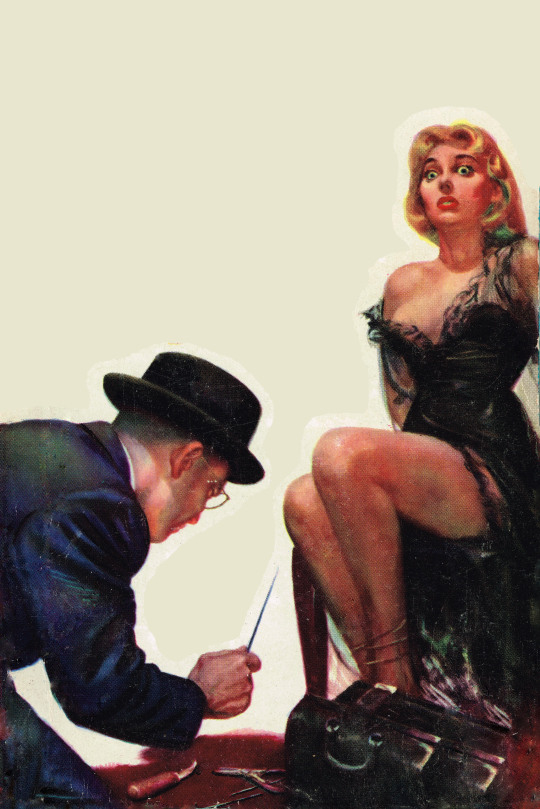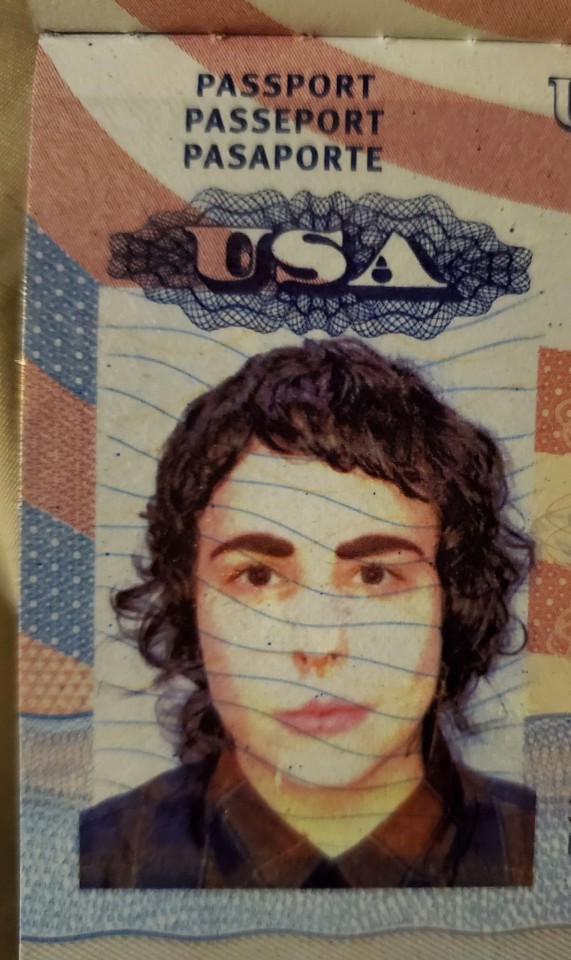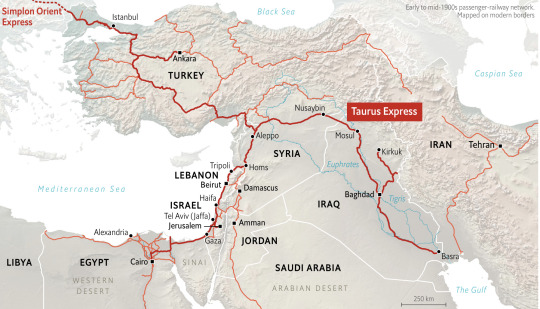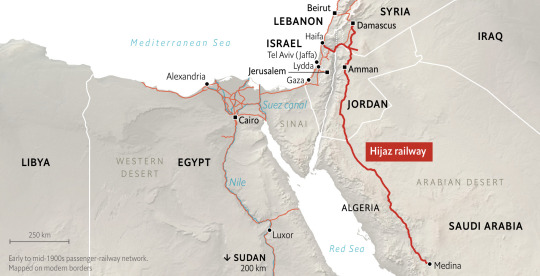#Passport to Peril
Text

book cover - Passport To Peril - 1952
Robert Stanley
#golden age art#book cover art#pulp art#pulp art 1952#Passport To Peril#Robert Stanley art#byronrimbaud
78 notes
·
View notes
Text


Pink Panther Chasing Louie and Pugg
#the pink panther#pink panther#the dogfather#metro goldwyn mayer#chasing#chase#The Pink Panther Passport to Peril#Passport to Peril#computer games#computer#day and night#day#night#cartoon#animated#gif
3 notes
·
View notes
Text
In Gaza, a child is not really a child. Our eight-year-old son, Yazzan, has been talking about fetching his toys from the ruins of our house. He should be learning how to draw, how to play soccer, how to take a family photo. Instead, he is learning how to hide when bombs fall.
I don’t want to hug anyone, because I don’t want to believe that I am leaving them. I kiss my parents and shake hands with my siblings, as though I am only going on a short trip. What I am feeling is not guilt but a sense of unfairness. Why can I leave and they cannot? We are lucky that Mostafa was born in the U.S. Does it make them less human, less worthy of protection, that their children were not? I think about how, when we go, I may not be able to call them, or even find out whether they are alive or dead. Every step we take will take us away from them.
We are about to pass the checkpoint when a soldier starts to call out, seemingly at random.
“The young man with the blue plastic bag and the yellow jacket, put everything down and come here.”
...
They’re not going to pull me out of the line, I think. I am holding Mostafa and flashing his American passport. Then the soldier says, “The young man with the black backpack who is carrying a red-haired boy. Put the boy down and come my way.” He is talking to me.
The soldiers blindfold me and attach a numbered bracelet to one wrist. I wonder how Israelis would feel if they were known by a number. Then someone grabs the back of my neck and shoves me forward, as though we are sheep on our way to be slaughtered. I keep asking for someone to talk to, but no one responds. The earth is muddy and cold and strewn with rubble.
I am pushed onto my knees, and then made to stand, and then ordered to kneel again. Soldiers keep asking in Arabic, “What’s your name? What’s your I.D. number?”
One by one, we are forced into a truck. Someone who is not moving lands on my lap. I fear that a soldier has thrown a corpse onto me, as a form of torture, but I am scared to speak. I whisper, “Are you alive?”
“Yes, man,” the person says, and I sigh with relief.
When the truck stops, we hear what sound like gunshots. I no longer feel my body. The soldiers give off a smell that reminds me of coffins. I find myself wishing that a heart attack would kill me.
Another man, maybe talking to himself, says quietly, “I need to be with my daughter and pregnant wife. Please.”
My eyes fill with tears. I imagine Maram and our kids on the other side of the checkpoint. They don’t have blankets or even enough clothes. I can hear female soldiers, chatting and laughing.
Suddenly, someone kicks me in the stomach. I fly back and hit the ground, breathless. I cry out in Arabic for my mother.
I am forced back onto my knees. There is no time to feel scared. A boot kicks me in the nose and mouth. I feel that I am almost finished, but the nightmare is not over.
When we exit the truck and my name is called, I am temporarily given my I.D. card. I feel a prick of hope. Maybe they are going to release us.
Inside a building, my blindfold is pulled off. A soldier is aiming an M-16 at my head. Another soldier, behind a computer, asks questions and takes a photo of me. Another numbered badge is fastened to my left arm. Then I see the doctor, who asks whether I suffer from chronic diseases or feel sick. He does not seem interested in my pain.
Back at the detention center, blindfolded again, we kneel painfully for hours. I try to sleep. A man moans nearby; another is hopeful that he will get to go back to the doctor. Late in the evening, a soldier calls my name. The shawish leads me to the gate, and a jeep comes to take me away.
When I wake, a soldier says something in English that I cannot believe.
“We are sorry about the mistake. You are going home.”
“Are you serious?”
Silence.
“I will go back to Gaza and be with my family?”
“Why wouldn’t I be serious?”
Another voice chimes in: “Isn’t this the writer?”
Back at the detention center, as I fall asleep, I think about the words “We are sorry about the mistake.” I wonder how many mistakes the Israeli Army has made, and whether they will say sorry to anyone else.
On Tuesday, about two days after I left the school, the man with the megaphone teaches us how to say good morning in Hebrew. “Boker Tov, Captain,” we say in unison. Some new detainees have arrived in an enclosure nearby, and the soldiers overseeing them seem to be having fun. They sing part of an Arabic children’s song, “Oh, my sheep!,” and order the detainees to say “Baa” in response.
After an hour, some soldiers approach. One has my I.D., and another drops a pair of slippers for me and tells me to walk. Then one of them says, “Release!”
I am so overjoyed that I thank him. I think about my wife and children. I hope that my parents and siblings are alive.
I spend about two hours at the place where I was interrogated, with the Hebrew music. I am given some food and water, but the soldiers never find my family’s passports. I climb into a jeep, surrounded by soldiers. After two hours, I can see around my blindfold that we are getting close to Gaza.
The soldiers get out, smoke, and return fully armed, wearing their vests and helmets. I am thinking about the man I recognized in line, and what he said about human shields. I am starting to wish that I could go back to the detention center when they give me my I.D. card.
Standing against a wall, I tell the closest soldier that I am scared.
“Do not feel scared. You will leave soon.”
My handcuffs are cut, and the blindfold is removed. I see the place where I had to take my clothes off. When I see new detainees waiting there, sadness overwhelms me.
I take off my slippers and start to run. Passersby are staring, but I don’t care. Suddenly, I spot an old friend, Mahdi, who once was the goalkeeper on my soccer team. “Mahdi! I’m lost—help me.”
“Mosab!” We hug each other.
“Your wife and kids are at the school next to the college,” he says. “Just turn left and walk for about two hundred metres.”
I cry as I run. Just when I start to worry that I have lost my way, I hear Yaffa’s voice. “Daddy!” She is the first piece of my puzzle. She seems healthy, and is eating an orange. When I ask where the rest of the family is, she takes my hand and pulls me as if I were a child.
I learn from Maram how lucky I was. She used my phone to inform friends around the world, who demanded my safe release. I think about the hundreds or thousands of Palestinians, many of them likely more talented than me, who were taken from the checkpoint. Their friends could not help them.
#endisraelsgenocide#Free Palestine#and these are just highlights.#if you go to the link -#you can read or hear the whole story
145 notes
·
View notes
Text
Chat Noir
Spiderman 2 Black Cat x Female Reader
Summary: Directly after jumping through the portal to Paris Felicia spares no time finding her girlfriend's whereabouts and saving her from things that followed her from New York City.
Warnings: Spoilers *kinda* for Spiderman 2, Violence, Blood, Injury, Battery, Kidnapping, Restraint, Emotional Distress
Word Count: 490 Words
After leaping into the unknown of Paris, Felicia was immediately enveloped by the familiar aroma of freshly baked bread. While envisioning the Eiffel Tower alongside Miles, her thoughts of y/n stealthily slipped in, and she found herself gazing at the towering structure of architectural genius with a bakery standing right behind her.
Gracefully, she pivoted on the tips of her toes toward the bakery. Retrieving a letter with impeccable handwriting from her boot, undoubtedly belonging to her beloved, she reread the address and a two-letter signature. With a smile and a skip in her step, she set out to find y/n.
~~~
Despite odd looks and eye rolls, she eventually traced her way to y/n's apartment. Ascending the fire escape, she reached the middle of the building and, using a glass cutter, deftly breached the thin pane separating her from y/n.
Unlocking the window with a soft click, she slid the pane open and stealthily entered. Navigating the marbles scattered across the floor, she marveled at the intricacies of the locks on y/n's door and the elaborate security measures within the apartment. From a concealed taser to more complex contraptions, like the safe which had electrical wiring to deter intruders.
Despite the safety measures, she wondered why y/n was absent.
~~~
Y/n had ademently pushed the idea of moving herself away from her home and away from her girlfriend. Felicia however, insisted she would be safer an ocean away from her trouble with local New York gangs like Fisk's. Felicia forgot how quickly and easily Fisk could track a fake passport and ID or how easily Fisk sent men after her to get information. Now, faced with the demand for secrets, y/n staunchly refused to betray Felicia's trust.
"I'm gonna ask again nicely. Where did she hid the painting?"
A huge wad of bloody spit landed on the lapel of his jacket.
The defiant response earned her a brutal retaliation, the mood shifting with an incoming call. The threat escalated, culminating in a gun pointed at y/n's forehead.
~~~
Engaging in some detective work, Felicia discovered clues leading her in pursuit of y/n's whereabouts. Concrete specks, torn jacket patches, and a trail of blood guided her steps.
~~~
Back at the scene, the situation took a perilous turn as a gun was aimed at y/n. In a daring rescue, Felicia intervened, swiftly incapacitating the assailants. A fierce confrontation ensued, with y/n helplessly tied to a chair.
~~~
After a ferocious battle, the room was filled with incapacitated adversaries. Felicia swiftly released y/n from her restraints, and they embraced. Y/n, battered but alive, found solace in Felicia's arms.
"I came as fast as I could, love. I'm so sorry. I thought you would be safe but I overheard one of Fisk's calls-" Felicia confessed.
"Just hold me, Felicia"
"I can do that. No one will get to you again, my little canary."
22 notes
·
View notes
Text
My entry: "Digital ID and the Australian Constitution." - Aressida. 28.3.24
Right before the Digital ID Bill was passed by the Australian Senate, Senator Roberts made a last-minute addition:
“Life is about to change for every Australians. As much as Senator Gallagher seeks to downplay the significance of introducing one central digital identifier for each and every Australian, the reality is that this is the most significant legislation I've seen in my time in the Senate. It's the glue that holds together the digital control agenda by which every Australian will be controlled, corralled, exploited and then gagged when they speak or act in opposition.”
“Socialists love control. Socialism needs control. For socialism to exist, there must be control. The government knows control will be used by government to identify people who say mean things on social media to speed up enforcement of our new laws against saying home truths to crazy or dishonest people.”
And from Pauline Hanson, “This law is designed to control the Australian people. It's a step towards the 15-minute cities already being imposed in the United Kingdom, heavily penalising anyone trying to travel outside their community. This is a secretive international effort to establish a one-world government with no freedom and no capacity for dissent.
Let's never forget how easily Australian governments imposed restrictions on us during the pandemic. We couldn't go anywhere without a digital vaccination certificate. Our freedom of speech was suppressed by government and by tech, and it continues in social media content. I will call it out the way I see it, as I always have done. Digital ID is the first step towards these restrictions being imposed on us permanently.”
She gets cut off at the end before she can finish Klaus’ infamous saying…..”You will own nothing and you will be happy!”
————————————————————————————————
We need to firmly oppose this perilous course of action. The imminent implementation of a Digital ID system will enable complete authoritarian control over the state, leading to the establishment of a techno-communist society.
We are rapidly moving towards a future where vaccination passports, CBDCs, and social credit/Co2 scores are all combined into one digital format.
We must not tolerate this encroachment on our individual rights and privacy. It is crucial that we stand against these actions and safeguard the principles that form the foundation of a free and democratic society.
I think the proper order is:
1) The Australian Constitution should include a beginning highlighting the need to protect personal information, protecting individual privacy, and finding a balance between technology progress and individual rights and freedoms.
2) A strong bill of rights that clearly defends the freedoms of expression, privacy, and unjust surveillance in the physical and digital spheres should come after it.
3) In order to safeguard citizens against the misuse of digital ID, the constitution ought to have provisions that clearly define the government's obligation to safeguard citizens' private information, stop illegal access, and guarantee fair and transparent use of digital ID programs.
4) To protect individual privacy, clear regulations pertaining to the gathering, storing, and use of personal data related to digital ID systems should be put in place. These regulations should specify what constitutes informed permission, how data should be minimized, and how long data must be kept.
5) To monitor and control digital ID systems and ensure accountability, openness, and respect for privacy rights, independent oversight bodies need to be set up. These organizations must be able to look into complaints, punish violators, and release periodic reports on privacy conditions.
6) To protect against the marginalization or disadvantage of specific groups, provisions should be included that forbid discrimination based on digital ID.
7) The judiciary should be empowered to invalidate unlawful legislation or activities that violate people's privacy, and a strong system of judicial review should be put in place to allow people to contest abuses of their digital ID systems or rights to privacy.
Let's raise awareness, defend our rights, and ensure government accountability.

13 notes
·
View notes
Text
Currently Reading - November 2023
Gosh, it's been a little while since I did one of these!
The Year of Peril: America in 1942 - Tracey Campbell . Found this one at the library booksale just after I finished the 1942 podcast series. The book is excellent so far and really flipping some interesting issues over.
Just Finished Reading:
Millions Like Us: Women's Lives during the Second World War by Virgina Nicolson - This was excellent and I strongly recommend it. I got a lot of inspiration for the end of TDS in it and there's a lot of material that I think will come in handy for MOTA.
Sisters in Arms: British Army Nurses Tell Their Story, by Nicola Tyrer - Another super excellent book that filled in a serious knowledge gap I had about British nursing. Might come in handy for future SAS:RH productions.
An Unladylike Profession: American Women War Correspondents in World War I by Chris Dubbs - This was an impulse purchase on thriftbooks and was very interesting.
The Call of the Wrens, by Jenni Walsh. Fiction. Glad this was only a library book - it was just okay. I'm not a big fan of time jumps as a narrative device - it feels thin.
Cassiel's Servant, by Jacqueline Carey. Fiction. It was really fun to go back to Terre D'Ange for this one, and interesting to see Joscelin's side of things. Realized Joscelin may be why/how I write Dick the way I do.
Ashes under water : the SS Eastland and the shipwreck that shook America, by Michael McCarthy. This was a book club pick that I ended up not being able to join discussion on. A really interesting story, if you're into maritime disasters.
Prisoners of the castle : an epic story of survival and escape from Colditz, the Nazis' fortress prison, by Ben Macintyre. This was on the shelf at the library and I was reading mostly for mentions of David Stirling. Still - very interesting, especially when paired with...
Churchill's Ministry of Ungentlemanly Warfare: The Mavericks Who Plotted Hitler's Defeat, by Giles Milton. This book was fascinating. A lot of backstory behind the stuff that made the war work.
The Immortal life of Henrietta Lacks, by Rebecca Skloot. A book club pick that I'm really glad I read.
Just Finished Watching:
Our Miracle Years (Unsere wunderbaren Jahre, Das Erste/PBS) - follows the life of one family in the post-war period. Some good food for thought here.
A Place to Call Home, Season 1 (Foxtel/ Hoopla) - More post-war, this time in Australia, which I started just as something to watch and am now very embroiled in. (Fair warning, this show contains conversation therapy, a miscarriage, and antisemitism, and may probably be triggering for some.)
World On Fire, Season 2 (BBC/PBS) - I came, I brought my Passport subscription, I tried...and after all six episodes I still don't like this show. I don't feel like we spend enough time with any of the characters to really appreciate them. It feels like everyone's there to make a point.
Outlander Season 7 (STARZ) - This was just fun. I'm not a huge fan of the books, but the TV series is really enjoyable for me.
Captain Horatio Hornblower (1951) - This has been on my list for a while and it popped up recently on Hoopla. I like Peck's nervousness in the role.
Dalgliesh, Season 2 (Acorn/Hoopla) - Bertie Carvel continues to do great in this role. I kind of wish there was a crossover involving him and Morse.
To Walk Invisible (BBC/ PBS)- It was really fun to watch this back to back with Emily.
Emily (2022) - Getting two mostly recent takes on the Bronte sisters so close together was really interesting.
Farewell My Queen (2012) - watched this while on vacation in Williamsburg. A nice 18th century drama.
16 notes
·
View notes
Text
Okay so. Rather than the PL era, what I would've done is have the vampires realize they can't keep living isolated lives because frankly, security cameras and banking regulations and stuff are making their continued existence (as the small post-QotD handful) very perilous. So they finally arrive on a plan: take over Monaco. It's small enough to be manageable, and it already has a history of being shady and enigmatic, as well as luxurious and rich. It's a sovereign government that asks few questions and expects few answers. Its structure is actually highly conducive to vampire rule. They'd be able to issue passports, control their own banking, issue official documentation, all of it. Monaco is only 36,000 people--it won't be a completely simple matter, but again, I think it's very doable for entities with their powers. Keep the de jure leadership perhaps but really be running the show. Or a combination de facto/de jure depending on the role!
This would also be great because it means they'd all basically have to have Jobs and Get Along in at least a collegiate way and you know they'd totally hate that. But what else can you do! Even with their fun, fun perks, even Ricepires are going to run up against realities of the modern world. Now they're stuck running Monaco and trying to keep their heads down as well as they can. They're not all physically IN Monaco but as a safe have/home base it would just become increasingly necessary. Imagine! Anyway, sorry to any Monaco mutuals but yeah I think vampires would absolutely thrive in your little country. 🇲🇨
26 notes
·
View notes
Text

WINTER, AS COLD AS THE ICY BREATH OF DEATH, NATURE TO THE RESCUE
Winter, when death dampens its cold breath on the world. once a year, nature requalifies itself. Does it send the beast (death) to restore the life of those too weak? Who have not yet prepared? Death blows an icy wind, testing all who can defend themselves on there own.
When nature protects its subjects and ensures their backs.
Nature has some funny ways of surviving. For marine animals and air beings; “Sorry ladies and gentlemen, we’re not dealing with it again this year, we’ll be back when it’s over”. They choose migration, a perilous but effective decision. And for those without “passports”, animals stuck on the ground, don’t seem to care. “Well, we’ll have a good sleep. Let the cold lovers have some fun”. Finally, in rewards for their beauty and innocence, nature takes over the plants. She takes under her wings the daughters of light, and covers them with a cold thrush that protects them from the frost.
Well, humans. Boots and coats to go to work, produce and make profit, to pay for heating bills, to go skiing to avoid paying for medicines against depression, headaches and colds. Yeah, sad truth!
In most culture, death is depicted by the colour black. Maybe that is why black dress code is used in many countries like in America and Europe, symbolizing moaning, suffering and death. However, in Asia, white represents death and rebirth.
This grey picture we all have of winter is much deeper than we think. When the darkness of death falls on the guardian of life, her white radiant dress brings a shower of light that allows the fir trees to stay green, polar bears to expand their hunting zone and children to throw snowballs in front of a coral that exalts the magic of Christmas.
114 notes
·
View notes
Text
He's going to become even more dangerous as he becomes increasingly cornered in court. He needs to be placed under a gag order, and his passport taken away. When he breaks the gag order, which he will, throw his ass in jail. He's a terrorist and a traitor.
5 notes
·
View notes
Text
Unboxing the Unknown: Delving into the Dark Web Mystery Box
In the darker recesses of the internet, a subculture of intrigue and mystery grows — the dark web. Hidden under the surface of the World Wide Web, the dark web is famed for its unlawful activities, anonymity, and the selling of intriguing "mystery boxes." These scary gifts have caught the interest of many, offering a voyage into the unknown. In this essay, we will go on a virtual excursion into the dark web, studying the notion of the "dark web mystery box" and the secrets they hold.
The Allure of the Dark Web Mystery Box
The appeal of the dark web mystery box is a phenomenon that captures the excitement of the unknown in the digital era. In a society where quick pleasure and information accessibility are the norm, the notion of getting a mystery gift with unannounced contents has a magnetic attraction. It sparks interest and gives an experience that is both exciting and surprising. At its foundation, the fascination of the dark web mystery box may be due to various things. First and foremost is the element of surprise. In a time when we can trace our Amazon orders down to the minute, the prospect of getting something utterly unexpected is alluring. Each box is a Pandora's Box of possibilities, holding objects that vary from the unusual and weird to the possibly expensive and uncommon. The prospect of unpacking such a gift is an amazing experience in itself. Furthermore, the dark web mystery box feeds into our interest in the obscure and the intriguing. The descriptions offered by vendors are typically obscure, providing an air of mystery to the whole transaction. Buyers are left to decode clues and suggestions about what may be within, creating the feeling of adventure.
However, this attraction comes with a huge drawback. The dark web, where these mysterious boxes are commonly located, is a digital underworld connected with unlawful activity and possible risks. Navigating this secret area needs specialist software like Tor and a willingness to embrace the hazards that come with it. Buyers of dark web mystery boxes typically join a world where anonymity prevails, and confidence in the seller is vital, making the encounter all the more thrilling and risky.
The ethical and legal consequences of dealing with dark web mystery boxes are also a part of the allure's complicated tapestry. Some boxes may include things that skirt the bounds of legality, pushing customers into a moral gray area. Questions regarding the repercussions of participation in such a subculture continue, raising worries about the possibility of accidentally purchasing unlawful or unsettling objects. In conclusion, the attractiveness of the dark web mystery box is a tribute to the everlasting fascination of the unknown. It appeals to our inherent curiosity, our yearning for surprise and adventure, and our fascination with the enigmatic. However, it is a place filled with perils and ethical difficulties, reminding us that, in the era of the internet, even the attraction to the unknown comes with its own set of repercussions. It is an intriguing conundrum that continues to enchant and mystify those eager to investigate its depths.
The Dark Web's Underbelly
The dark web's underbelly is a digital domain wrapped in secret and infamy, a hidden area of the internet where anonymity reigns supreme. Accessible only via specialist software like Tor, it helps users can disguise their identities while traversing a complex network of encrypted websites and forums. While the dark web itself is not inherently evil, it has earned a reputation for supporting a myriad of criminal activities that flourish in its shadows. One of the most troubling features of the dark web's underbelly is its function as a marketplace for illicit products and services. Here, cybercriminals perform unlawful operations with relative impunity, trafficking in anything from narcotics and stolen data to counterfeit currencies and bogus passports. The anonymity given by the dark web protects these actors from the prying eyes of law enforcement, making it a refuge for illicit organizations to grow. Mystery box services on dark web sites involve purchasing packages with unknown contents, creating an element of surprise, but can often lead to illegal or dangerous items.
However, the hazards connected with digging into this hidden side of the internet cannot be understated. Users who wander onto the dark web subject themselves to a range of possible perils. Malicious hackers and cybercriminals exist, attacking unwary visitors with fraud, phishing attempts, and malware. Moreover, the dark web is not just a center for illegal transactions but also a collection of unsettling and criminal information, ranging from explicit photos to forums advocating hate speech and extremism. Law enforcement organizations worldwide actively monitor the dark web, attempting to combat its unlawful activities and catch individuals who operate inside its murky depths. Nonetheless, the ever-evolving nature of the dark web makes it a continual problem for authorities to successfully resist.
What's Inside a Dark Web Mystery Box?
The contents of a dark web mystery box are as cryptic as the unseen regions of the internet from whence they emerge. These boxes are frequently offered with cryptic descriptions, delivering little to no information about what customers will get. The fascination comes in the expectation of finding the unexpected since they offer a varied selection of products that may span from the quirky to the possibly priceless. Some mystery boxes may include uncommon artifacts, rare or old objects, esoteric devices, or even eccentric curiosities that defy classification. On the darker side of the spectrum, tales continue about boxes holding illegal or unpleasant things, giving an element of risk and unpredictability to the experience. The mystery around the contents of these boxes keeps customers engaged, as they embark on a virtual voyage into the unknown, typically with a combination of exhilaration and anxiety. However, it is vital to understand that the absence of transparency in dark web mystery box transactions presents ethical and legal considerations, as the line between curiosity and possible repercussions becomes more blurred.
Legality and Ethics
Legality and ethics surrounding dark web mystery boxes create a complex terrain that deserves careful scrutiny. The sheer nature of these enigmatic goods, typically acquired without any specific understanding of their contents, poses substantial ethical considerations. Buyers may unknowingly assist illicit operations, such as the trafficking of stolen goods, drugs, or other prohibited products when they participate in these transactions. The vendors themselves may use the appeal of the unknown, exploiting the curiosity of consumers for personal benefit, which may be considered an ethically problematic behavior. Moreover, the ethical problem extends to the possible damage that may arise from opening a dark web mystery box. While some parcels may contain innocuous curiosities or novelties, there have been occasions when customers found upsetting or even horrific contents. The psychological toll of such revelations underlines the ethical problems surrounding these transactions, as people may inadvertently expose themselves to traumatic situations. On the legal front, dark web mystery boxes operate in a legal murky area. The sale and purchase of these items are generally performed anonymously, making it hard for law enforcement organizations to monitor or control them efficiently. Buyers and sellers alike may be straying perilously close to unlawful activity without clear legal implications. In conclusion, the appeal of dark web mystery boxes is certainly intriguing, fueled by the human obsession with the unknown and the unexpected. However, the ethical and legal repercussions of engaging in this subculture are enormous. As we traverse the digital era, it is vital to exhibit prudence and ethical judgment, knowing that curiosity may lead folks into ethically problematic areas, and the repercussions of engaging with the dark web's cryptic offers are far-reaching.
Conclusion
"Unboxing the Unknown: Delving into the Dark Web Mystery Box" gives a glance into the hidden realm of the dark web, where mystery and intrigue combine with ethical and legal problems. While these intriguing boxes continue to intrigue the inquisitive, they also serve as a sharp warning of the dangers hiding under the surface of the internet. As with any trip into the unknown, step cautiously, and remember that curiosity comes with its own set of repercussions.
2 notes
·
View notes
Text
December 3rd: San Francisco, where Verne really has it for Americans
(warning for the N word)
on the 3rd of December, the “General Grant” entered the bay of the Golden Gate, and reached San Francisco.
Mr. Fogg had neither gained nor lost a single day.
It was seven in the morning when Mr. Fogg, Aouda, and Passepartout set foot upon the American continent, if this name can be given to the floating quay upon which they disembarked. These quays, rising and falling with the tide, thus facilitate the loading and unloading of vessels. Alongside them were clippers of all sizes, steamers of all nationalities, and the steamboats, with several decks rising one above the other, which ply on the Sacramento and its tributaries. There were also heaped up the products of a commerce which extends to Mexico, Chili, Peru, Brazil, Europe, Asia, and all the Pacific islands.
Passepartout, in his joy on reaching at last the American continent, thought he would manifest it by executing a perilous vault in fine style; but, tumbling upon some worm-eaten planks, he fell through them. Put out of countenance by the manner in which he thus “set foot” upon the New World, he uttered a loud cry, which so frightened the innumerable cormorants and pelicans that are always perched upon these movable quays, that they flew noisily away.
Mr. Fogg, on reaching shore, proceeded to find out at what hour the first train left for New York, and learned that this was at six o’clock p.m.; he had, therefore, an entire day to spend in the Californian capital. Taking a carriage at a charge of three dollars, he and Aouda entered it, while Passepartout mounted the box beside the driver, and they set out for the International Hotel.
From his exalted position Passepartout observed with much curiosity the wide streets, the low, evenly ranged houses, the Anglo-Saxon Gothic churches, the great docks, the palatial wooden and brick warehouses, the numerous conveyances, omnibuses, horse-cars, and upon the side-walks, not only Americans and Europeans, but Chinese and Indians. Passepartout was surprised at all he saw. San Francisco was no longer the legendary city of 1849—a city of banditti, assassins, and incendiaries, who had flocked hither in crowds in pursuit of plunder; a paradise of outlaws, where they gambled with gold-dust, a revolver in one hand and a bowie-knife in the other: it was now a great commercial emporium.
The lofty tower of its City Hall overlooked the whole panorama of the streets and avenues, which cut each other at right-angles, and in the midst of which appeared pleasant, verdant squares, while beyond appeared the Chinese quarter, seemingly imported from the Celestial Empire in a toy-box. Sombreros and red shirts and plumed Indians were rarely to be seen; but there were silk hats and black coats everywhere worn by a multitude of nervously active, gentlemanly-looking men. Some of the streets—especially Montgomery Street, which is to San Francisco what Regent Street is to London, the Boulevard des Italiens to Paris, and Broadway to New York—were lined with splendid and spacious stores, which exposed in their windows the products of the entire world.
When Passepartout reached the International Hotel, it did not seem to him as if he had left England at all.
The ground floor of the hotel was occupied by a large bar, a sort of restaurant freely open to all passers-by, who might partake of dried beef, oyster soup, biscuits, and cheese, without taking out their purses. Payment was made only for the ale, porter, or sherry which was drunk. This seemed “very American” to Passepartout. The hotel refreshment-rooms were comfortable, and Mr. Fogg and Aouda, installing themselves at a table, were abundantly served on diminutive plates by negroes of darkest hue.
After breakfast, Mr. Fogg, accompanied by Aouda, started for the English consulate to have his passport visaed. As he was going out, he met Passepartout, who asked him if it would not be well, before taking the train, to purchase some dozens of Enfield rifles and Colt’s revolvers. He had been listening to stories of attacks upon the trains by the Sioux and Pawnees. Mr. Fogg thought it a useless precaution, but told him to do as he thought best, and went on to the consulate.
He had not proceeded two hundred steps, however, when, “by the greatest chance in the world,” he met Fix. The detective seemed wholly taken by surprise. What! Had Mr. Fogg and himself crossed the Pacific together, and not met on the steamer! At least Fix felt honoured to behold once more the gentleman to whom he owed so much, and, as his business recalled him to Europe, he should be delighted to continue the journey in such pleasant company.
Mr. Fogg replied that the honour would be his; and the detective—who was determined not to lose sight of him—begged permission to accompany them in their walk about San Francisco—a request which Mr. Fogg readily granted.
They soon found themselves in Montgomery Street, where a great crowd was collected; the side-walks, street, horsecar rails, the shop-doors, the windows of the houses, and even the roofs, were full of people. Men were going about carrying large posters, and flags and streamers were floating in the wind; while loud cries were heard on every hand.
“Hurrah for Camerfield!”
“Hurrah for Mandiboy!”
It was a political meeting; at least so Fix conjectured, who said to Mr. Fogg, “Perhaps we had better not mingle with the crowd. There may be danger in it.”
“Yes,” returned Mr. Fogg; “and blows, even if they are political, are still blows.”
Fix smiled at this remark; and, in order to be able to see without being jostled about, the party took up a position on the top of a flight of steps situated at the upper end of Montgomery Street. Opposite them, on the other side of the street, between a coal wharf and a petroleum warehouse, a large platform had been erected in the open air, towards which the current of the crowd seemed to be directed.
For what purpose was this meeting? What was the occasion of this excited assemblage? Phileas Fogg could not imagine. Was it to nominate some high official—a governor or member of Congress? It was not improbable, so agitated was the multitude before them.
Just at this moment there was an unusual stir in the human mass. All the hands were raised in the air. Some, tightly closed, seemed to disappear suddenly in the midst of the cries—an energetic way, no doubt, of casting a vote. The crowd swayed back, the banners and flags wavered, disappeared an instant, then reappeared in tatters. The undulations of the human surge reached the steps, while all the heads floundered on the surface like a sea agitated by a squall. Many of the black hats disappeared, and the greater part of the crowd seemed to have diminished in height.
“It is evidently a meeting,” said Fix, “and its object must be an exciting one. I should not wonder if it were about the ‘Alabama,’ despite the fact that that question is settled.”
“Perhaps,” replied Mr. Fogg, simply.
“At least, there are two champions in presence of each other, the Honourable Mr. Camerfield and the Honourable Mr. Mandiboy.”
Aouda, leaning upon Mr. Fogg’s arm, observed the tumultuous scene with surprise, while Fix asked a man near him what the cause of it all was. Before the man could reply, a fresh agitation arose; hurrahs and excited shouts were heard; the staffs of the banners began to be used as offensive weapons; and fists flew about in every direction. Thumps were exchanged from the tops of the carriages and omnibuses which had been blocked up in the crowd. Boots and shoes went whirling through the air, and Mr. Fogg thought he even heard the crack of revolvers mingling in the din, the rout approached the stairway, and flowed over the lower step. One of the parties had evidently been repulsed; but the mere lookers-on could not tell whether Mandiboy or Camerfield had gained the upper hand.
“It would be prudent for us to retire,” said Fix, who was anxious that Mr. Fogg should not receive any injury, at least until they got back to London. “If there is any question about England in all this, and we were recognised, I fear it would go hard with us.”
“An English subject—” began Mr. Fogg.
He did not finish his sentence; for a terrific hubbub now arose on the terrace behind the flight of steps where they stood, and there were frantic shouts of, “Hurrah for Mandiboy! Hip, hip, hurrah!”
It was a band of voters coming to the rescue of their allies, and taking the Camerfield forces in flank. Mr. Fogg, Aouda, and Fix found themselves between two fires; it was too late to escape. The torrent of men, armed with loaded canes and sticks, was irresistible. Phileas Fogg and Fix were roughly hustled in their attempts to protect their fair companion; the former, as cool as ever, tried to defend himself with the weapons which nature has placed at the end of every Englishman’s arm, but in vain. A big brawny fellow with a red beard, flushed face, and broad shoulders, who seemed to be the chief of the band, raised his clenched fist to strike Mr. Fogg, whom he would have given a crushing blow, had not Fix rushed in and received it in his stead. An enormous bruise immediately made its appearance under the detective’s silk hat, which was completely smashed in.
“Yankee!” exclaimed Mr. Fogg, darting a contemptuous look at the ruffian.
“Englishman!” returned the other. “We will meet again!”
“When you please.”
“What is your name?”
“Phileas Fogg. And yours?”
“Colonel Stamp Proctor.”
The human tide now swept by, after overturning Fix, who speedily got upon his feet again, though with tattered clothes. Happily, he was not seriously hurt. His travelling overcoat was divided into two unequal parts, and his trousers resembled those of certain Indians, which fit less compactly than they are easy to put on. Aouda had escaped unharmed, and Fix alone bore marks of the fray in his black and blue bruise.
“Thanks,” said Mr. Fogg to the detective, as soon as they were out of the crowd.
“No thanks are necessary,” replied Fix; “but let us go.”
“Where?”
“To a tailor’s.”
Such a visit was, indeed, opportune. The clothing of both Mr. Fogg and Fix was in rags, as if they had themselves been actively engaged in the contest between Camerfield and Mandiboy. An hour after, they were once more suitably attired, and with Aouda returned to the International Hotel.
Passepartout was waiting for his master, armed with half a dozen six-barrelled revolvers. When he perceived Fix, he knit his brows; but Aouda having, in a few words, told him of their adventure, his countenance resumed its placid expression. Fix evidently was no longer an enemy, but an ally; he was faithfully keeping his word.
Dinner over, the coach which was to convey the passengers and their luggage to the station drew up to the door. As he was getting in, Mr. Fogg said to Fix, “You have not seen this Colonel Proctor again?”
“No.”
“I will come back to America to find him,” said Phileas Fogg calmly. “It would not be right for an Englishman to permit himself to be treated in that way, without retaliating.”
The detective smiled, but did not reply. It was clear that Mr. Fogg was one of those Englishmen who, while they do not tolerate duelling at home, fight abroad when their honour is attacked.
At a quarter before six the travellers reached the station, and found the train ready to depart. As he was about to enter it, Mr. Fogg called a porter, and said to him: “My friend, was there not some trouble to-day in San Francisco?”
“It was a political meeting, sir,” replied the porter.
“But I thought there was a great deal of disturbance in the streets.”
“It was only a meeting assembled for an election.”
“The election of a general-in-chief, no doubt?” asked Mr. Fogg.
“No, sir; of a justice of the peace.”
Phileas Fogg got into the train, which started off at full speed.
13 notes
·
View notes
Text






Hey, everyone! Long time no see! I know I'm rarely here, but whenever I have too big collections of fanart made, then where else is better to publish them than here?
Okay, You're propably wondering what these collages are and how I made them, don't You?
It's simple: All I had to do was to take some snapshots with my iPhone, then transfer the photos to my laptop and then make collages on Paint out of them all. They're all from the 90's computer game "The Pink Panther: Passport to Peril'' - one of my childhood's favorites to this day. It also has a following sequel called "The Pink Panther: Hokus Pokus'' which was released a year later, but for some reason the sequel appeared first in Poland in 2000 whereas the first game a year after. Therefore most of the Polish fans think the sequel is the first game and the firsst game is the sequel, but not me as I'd stick to the chronological order. Both games were educational point & clicks where You collected and used items, talked to characters and even learned some fascinating stuff about the countries You visited. Which brings up the main topic of this collaction which is the PDA: the small electronic device Von Shmarty presents Pink with before our hero can take off. Thanks to this little device, You can click on characters and objects and when the PDA icon appears below the left side on the screen, You automatically get access to the information written there. The countries You visit and learn about in the game are England, Egypt, China, Bhutan, India and Australia. As for the topics, there's 8 of them and whenever You click their icons on the main menu, You can meet the familiar characters from the 1993's animated "Pink Panther'' show:
Nature: The Dogfather and his goons Pugg & Louie (in Poland their names are Pershing, Zenuś i Szczurek)
Fashion: Voodoo Man
History: Inspector Clouseau
Religion: Dr. Helmut Von Shmarty
Geography: Mrs. Chubalingo AKA Granny
Art: The Big Nose AKA the Little Man AKA Camp Chilly Wawa's Director
Cuisine: Aardvard
Society: Ant
However, the animated series from the 90's didn't officially appear in Poland until the early 2010's. Basically, it's thanks to the games themselves I got interested in the series not only because Pink could talk, but mainly because it's so connected to both of them, to the point they inpired me to plan a fanfic or 2 in the future. It's uncertain when it'll be written, but when the time comes, I'll let You guys know here or on my DA page. Speaking of DA, don't forget to check out the many other artworks I put there, please: https://www.deviantart.com/marieangel04. And get ready, because today there'll be some new collages uploaded in there! ;D Just remember: NO trolling, hating, cyberbullying, gremlining ot stealing from neither here or there, alright? Thank You very much for Your attention and see Ya next time! Enjoy!
P. S.
I don't own "The Pink Panther'' show or games because they belong to the MGM Studio, whereas the games were made by Wanderlust Interactive!
P. S. 2
If You wish to read more of the PDA's content, along with the Book of Knowledge from the sequels, here are the links I recommend You to check for Yourselves: https://www.youtube.com/playlist?list=PLB9TwM3jkQo1_JulBxrWMXLwk_Srg9qbP & https://www.youtube.com/playlist?list=PLB9TwM3jkQo3IS0-1qv11TeG1Z8gYsxIq.
3 notes
·
View notes
Text
Airport
I know this isn't Monday but am I late when I told you last week I would do this on Tuesday because I was fleeing, I mean leaving the country temporarily? I am back, rested, and full of stuff to share.
This was the first time we traveled since Covid shut everything down in 2020, and in that time there have been MANY changes to how we go through the airport system. I hear enhancements were made to make our travel experience more enjoyable, but I also heard once that rubbing mayo on your head made your hair grow back. Fool me once...
There were things on the flight I observed (like maybe all kids between the ages of 3-8 should be put in with the baggage), but that is not what I will be discussing today.
There was also the experience with the travel agent, who took our money, set up reservations with the airlines and resort, but we had to do everything else including produce our own tickets and boarding passes, but I will not be discussing that today either.
This blog is about the experience at the airports (coming and going) that I want to discuss, hence the title of this blog. I will not name names when it comes to the airports, but this involves one domestic and one foreign. You can take your pick which I am referring to.
If you are going to have self check in machines, put some in that work. I was trying to check my baggage and received every default and error message except a digital middle finger. There are 'people' there to help, but when they come over they punch in some super secret code that makes everything run smooth, then they look at you with that 'Your are pathetic' smirk before they walk away to join with the other helpers to compare stories.
Why do you have to go on line to get a boarding pass 24 hours before your flight when you still have to line up at the airport for two hours for them to give you a paper boarding pass and take your luggage. Here is a helpful hint: put an outhouse in the line because a lot of seniors travel and we could sure use one.
The plane lands, it takes you forty minutes to go through all the various checkpoints, and you still get to the carousel 15 minutes before your luggage.
Speaking of check points, Have a sign that says 'You will need to show your passport 6 times, your boarding pass 8 times, and any other random pieces of paper they are going to ask for. I got tired just putting them away, taking them out, repeat.
I was stopped for a random customs check. What, you say this happens. Well let me tell you it keeps happening to me. I believe I am being profiled. This time I was worried as I was separated from the rest of the group and sent down a long corridor to a place where there were a lot of unsmiling faces on uniformed people staring at me. I was psychologically preparing myself for some kind of cavity search (at their peril mind you) when I was asked three questions. Where had I been? Was this my first time there? and how long were we away? That was it. I had to be isolated for those gripping sensitive questions. I felt like I was in Monty Python and the Holy Grail and one wrong answer and the floor would open up and I would never be seen again. My wife quietly waited for me (she is a saint) and here's the kicker: She had my passport. If they had asked to see mine I was screwed. This blog would still be waiting in my head, along with stories of prison life.
Did you know the airport sells luxury snacks? One of these years I will save up enough to see what a $3.50 chocolate bar tastes like. Don't be fooled by the packaging. They might look like the ones in Dollarama that go for .88 but there must be something special about them.
People push past you to get on the plane first. They might not be aware that it does not leave until all of us get on board. or that the seats are reserved not first come first serve.
This is my airport story.
THOUGHT OF THE WEEK: Don't judge your vacation by what happens at the airport. That will never change. Judge it by what happens between flying there and flying home. Isn't that where you take all the pictures anyway?
2 notes
·
View notes
Text
The one good thing that happened to me yesterday is now my hair will do anything I want because it was in the ocean. Really wondering how long I can push not washing it. And pardon me because I have to take and post a bunch of vanity selfies while I don't hate myself for ten seconds, and also in general to prove to myself that I exist. It's a maintenance activity.







Today was also not enitrely great but the one thing that WAS great was I got my new passport. I didn't have any kind of valid ID for so much of my life, and then for a lot of it I was perilously carrying my passport around just to buy beer and shit (and I was really afraid it would be too damaged to renew), it feels totally incredible to have two legit forms of photo identification. Like I can hardly believe it, and it looks decent too. I also ordered a passport card, so soon I'll have THREE.

9 notes
·
View notes
Note
Happy STS Sam! Since summer has begun for the northern hemisphere, my question is: what would your characters be like on vacation? Where would they travel (be it in our world or their world) or would they choose to stay home? Would they overpack, underpack, or forget their luggage all together? Late to the airport or six hours early? Stuff like that!
Hi Morana! It's STS again!
Now this is an interesting one.
In Days of Dusk, it's canon that Ianim used to visit his adoptive uncle/family friend in a small manor in the lake district. He considers it a summer retreat. It's a picturesque area, very quiet and far from people wanting things from the Young Prince. He would take a tonne of books (like, another trunk of just books) and read for half a day, and spend the other half riding around the area. Or maybe ride to a remote spot and read there until sunset.
Lissan and Gullin will end up jokingly daring each other to go to a more and more dangerous ridiculous place. Spend a night in the Eternal Woods. Walk along the edges of the Perilous Cliffs. Climb the highest mountain. They'll also go terribly unprepared, barely survive, then laugh about it for years to come.
Marta would love a city break. She'd do a fair amount of sightseeing, sure, but also so much shopping. She'd come with a half-empty trunk, and leave with it overflowing.
And I honestly can't imagine Erya or Anthea going on holiday. They're both a bit of workaholics.
Now as for modern airport AU...
Anthea delegates organising a weekend trip for her and Erya to someone else. They know better than to cut corners and do things she didn't ask for. She probably owns a private jet. The rest of the cast isn't invited.
Ianim arrives hours early and panics about being late. Gullin turns up just on time, underpacked. Lissan and Marta turn up two hours before the flight, but only because Marta is keeping an eye on time. I'm pretty sure it's going to be down to her to herd the cats, keep an eye on their passports, and make sure that some of them aren't let loose in duty free.
Oh, and as for where they're going - somewhere warm and sunny, since Gullin would be the first one to complain that he hates the cold, and others will have less strong preferences.
1 note
·
View note
Text
Murder of the Orient Express! Railway Lines Once Connected The Middle East. Now The Tracks That Joined Continents Lie in Wreckage
— December 18th 2021 | Medina, Oujda and Lydda | The Economist

She left her husband digging for pottery in Syria’s northern desert, handed her passport to the uniformed Turk at Nusaybin, and, as the steam whistle blew, clambered aboard the Express bound for Aleppo. On arrival, she checked into the Baron, the city’s only first-class hotel, and in room 203 began writing what is probably the most famous mystery novel of all time.
“It was five o’clock on a winter’s morning in Syria. Alongside the platform at Aleppo stood the train grandly designated in railway guides as the Taurus Express. It consisted of a kitchen and dining-car, a sleeping-car and two local coaches.” So Agatha Christie began “Murder on the Orient Express”. Set on the homeward leg of her journey through the Middle East, it conjures a lost world of interconnecting cabins, liveried conductors, embroidered handkerchiefs and passengers who dressed for dinner.
The victim is an American swindler stabbed a dozen times in his sleeper car. But though the tale made Christie the world’s best-selling novelist, it was a footnote compared to the crime unfolding around her—the dismemberment of the vast railway network that tied the Middle East together.
The passengers aboard the 0500 to Istanbul came from Baghdad, Kirkuk and Mosul. They might also have come from Khartoum, Alexandria, Jerusalem, Damascus and Basra. Maps from the time show a region criss-crossed with tracks. For the supposed “sick man of Europe”, the Ottoman empire in its last decades was remarkably energetic. In 1888, Sultan Abdelhamid II embarked on the most ambitious engineering project in six centuries of Ottoman rule, to link the four corners of his empire by rail.
Abdelhamid began with Islam’s holy sites. With the help of Christian and Jewish entrepreneurs, he cut a line from the Mediterranean through Judea’s limestone hills to Jerusalem. It deposited its first load of pilgrims opposite the al-Aqsa mosque in 1892. Eight years later, he commissioned a track 15 times longer linking Damascus, the traditional starting point of the haj, or Muslim pilgrimage, to Medina, where the Prophet Muhammad is buried. Completed in 1908, the line changed the pilgrimage from a perilous 40-day camel trek through Arabia’s deserts to a cushioned three-day ride. The Damascus terminal, renamed Allah’s Gate, was a showpiece of Islamic baroque.
From Morocco to Iraq Not a Single Train Crosses Borders
This construction accompanied other feats. In the empire’s twilight years, the sultans connected three booming Levantine ports—Tripoli, Beirut and Haifa—to ancient silk-road cities such as Damascus, Homs and Aleppo. On the eve of the first world war, the sultans allied with the German Kaiser to build a line from Berlin to Baghdad, bypassing Britain’s choke point, the Suez canal. German engineers helped bridge the Taurus mountains in the last weeks of the war—too late to reinforce fronts against the British pushing north.

The European empires that overran the Middle East implemented much of what the Ottomans left on the drawing board. By the 1930s passengers could travel from the English channel to Cairo with only three changes of train. The last leg, in third class, cost the equivalent of about two days’ work for a labourer. It left Haifa daily at 0830, steamed south to the Mediterranean port of Gaza by lunchtime, turned west into Sinai and arrived in the Egyptian capital by 2230.
From there, travellers could continue aboard one of the first air-conditioned carriages along the Nile to Luxor’s Valley of the Kings and on to Sudan. “Direct and quickest route to Damascus, Beyrout, Baalbek and Aleppo,” read a Palestine Railways brochure advertising the connections from Haifa. Sami Abu Shehadeh, a Palestinian historian and member of the Israeli Knesset, or parliament, says that “from Jaffa station you could commute across the Arab world.”
The Suspects
The Middle East had been a cosmopolitan hotchpotch of languages, ethnicities and sects since civilisation began. The railroads tossed them together like fruit in a bowl. Christie’s 13 suspects were “of all classes and nationalities”. On these trains, Muslim pilgrims heading from Tulkarm shared carriages with Jewish workers on package holidays from Haifa to Damascus that were organised by the Zionist trade union, the Histadrut. The Lebanese tourist board competed by printing adverts for its ski resorts in Hebrew. As a child Mahmoud Zahar, a leader of the Palestinian Islamist movement, Hamas, remembers catching the sleeper from his mother’s hometown of Alexandria to Gaza. The staff were no less diverse. Jews and Arabs worked under British command at Palestine Railways, along with 30 other nationalities. On Christie’s Express, the conductor was a Frenchman.

Seventy years later the tracks that joined continents lie in wreckage. From Morocco to Iraq not a single train crosses borders. Rusting carriages and engine hulks litter the sands. Cypress trees sprout between Lebanon’s lines. Rails were smelted into bullets like ploughshares into swords. Sleepers reinforced trench walls, and stations and repair yards became barracks and prisons. As in the murder on the Orient Express, the network fell victim to multiple blows. Tracing culpability is one of the region’s great whodunits.
The first suspect was another guest at the Baron, in the room next to Christie’s. For much of the first world war Thomas Edward Lawrence, a British intelligence officer, connived behind enemy lines to rupture the Hijaz railway to harry Ottoman troops. He raised a Bedouin band, fired them with jihadist zeal, blew up 79 bridges and derailed dozens of trains. Back home “Lawrence of Arabia” was a hero. His tactics were those of a terrorist. The wounded, many of them civilians, were left to die in the gorges. “This killing and killing of Turks is horrible,” Lawrence wrote in a letter home.
That said, the British have alibis. They built railways in the Middle East before and after the Ottomans. Robert Stephenson, an English pioneer of the steam train, began laying Egypt’s tracks in the 1850s. As British troops advanced they extended the lines.
The investigation into Lawrence reveals other leads. Many of his Bedouin recruits hated the Hijaz line for breaking their monopoly on transporting pilgrims and grain. “Jahash al-Sultan,” they called it, the Sultan’s donkey. It brought foreign mores, too, that disturbed time-honoured codes. Under the puritanical Al Saud dynasty, the Bedouin ripped up tracks from their new border to Medina. Follow the line south of Jordan today and for almost 800km all that remains is the naked embankment snaking past rust-coloured mountains. In places, wind-swept Ottoman stations and forts wait for a train that last passed a century ago.
Yet the Saudis also have alibis. Once the Bedouin carved out his kingdom, King Abdelaziz Ibn Saud slaughtered them in their hundreds. The Saudis point to other beneficiaries from the Bedouin assaults. Britain and France had long sought ways to interrupt the flow of their Muslim subjects to Mecca and limit their exposure to anti-colonial Islamists.
Zionists could also be found at the crime scene. The more militant considered Britain’s railways an iron spider’s web ensnaring their land, and they killed scores in dozens of attacks. On the “Night of the Trains”, on November 1st 1945, the three main Zionist militias blew up the lines at more than 150 points and planted bombs in the stations at Jerusalem and Lydda junction. Seven months later, a “Night of the Bridges” destroyed ten bridges connecting Palestine’s railways and roads to the Arab world. A website honouring the fighters of the Irgun, the militia headed by a future prime minister, Menachem Begin, still hails the achievement: “The operation achieved its objective, and the country was cut off from all its neighbours.”
The dismantlement continued with Israel’s independence in 1948. Israel blew up the bridge at Rosh HaNikra to cut off Beirut and plugged the tunnel through the South Lebanon hills, severing the line that linked Europe to Africa. The Israeli government also dissolved the Palestine Railway Company and dismissed many non-Jewish workers. After the 1967 war Israel abandoned the Ottoman lines in the West Bank, used Sinai’s tracks to fortify its Bar Lev defences along the Suez canal and locked Gaza—the old crossroads between continents—behind turrets and walls.
But the Israelis also have alibis. Had they not broken the lines, they say, the Arabs would have smuggled arms and men to destroy them. The Israelis argue that it was Arabs who undid the network. Palestinian militants targeted rail infrastructure during their revolt against the British in the 1930s. And with self-destructive zeal, Palestinians ripped up the last of Gaza’s rails to make tunnels and rockets.
Regional conflicts and civil wars finished the victim off. The French controlled their North African holdings with railways fanning out from Algiers. But after independence Morocco and Algeria battled over Western Sahara, and in 1994 the trans-Maghreb train to Tunis stopped 1,300km short. Two border towns, Oujda and Maghnia, face each other, united by ethnicity, religion, language and intermarriage but divided by army barricades. Their stations, once trading posts, are terminals. “Halte police,” read the no-entry signs. Peacocks pick at rubbish between the lines.

How It Was Once Possible To Cross the Middle East By Train
The last train left Tripoli for Beirut at the start of Lebanon’s civil war in 1975. Syria’s invading forces converted Rayak, the big junction and repair centre near its border, into a military base and turned an adjacent hotel into torture chambers. Israel’s offensive in 1982 finished off what remained of the line to Beirut.
For years, Agatha Christie’s Express was the stubborn survivor. The leg to Baghdad folded in the 1980s, but the night train from Aleppo to Turkey limped on. Then came Syria’s civil war in 2011. It terminated all but a fraction of Syria’s 2,450km of track. The platform still stands in Aleppo where Christie’s “Murder” began, but her route east to Iraq was damaged in the bombardment of Islamic State. Mosul station was destroyed. The Arab Union of Railways dissolved in 2016. After a spate of mortar attacks, Christie’s writing retreat, the Baron hotel, shut its doors in 2014.
Like the 12 killers aboard the Orient Express, the region’s rulers each had a motive. The colonial powers carved up the Middle East. The generals who succeeded them prioritised their parcels of territory over the common market and culture developed across millennia. Tinpot dictators saw cosmopolitanism and connectivity as threats to new national identities. Religion lost its universality and shrank into cults tied to plots of land. Syria expelled its French inspectors. Iraq’s railway administration sacked its Jewish managers. Bereft of expertise, many lines fell into disrepair. Train lines became like ancient silk-road souqs and bazaars, relics of a past when riches came from regional trade rather than the rent of a single raw material, be it oil, gas or phosphates. Defence came not from neighbourly relations but from a superpower far away.

The new love was the motor car. In 2019 Egypt paved over its Victorian tramway between downtown Cairo and the suburb of Heliopolis. To cover their tracks, the culprits gentrified the ruins. In 2014 hipsters turned Beirut’s Mar Mikhael station into a bar. Israel converted the old terminals in Jaffa and Jerusalem into nightclubs and swanky restaurants. With a nostalgic nod, each makeover sends the message that the original use had reached the end of the line.
The Verdict
Christie’s novel ends when the crime is solved. The story of the Middle East, though, never ends. As the oil age draws to a close, there are signs the region is rediscovering the value of its old connections. Many states plan to diversify their economies towards trade and industries such as tourism. Rulers worry they can no longer rely on America and are investing in regional diplomacy. And after the horrors of sectarian bloodletting, identity politics is losing its currency. Governments and political movements are cautiously rediscovering the benefits of religious multiplicity. Jewish communities are sprouting across the Middle East. Israel has its first Muslim party in government.
In tandem, railway branches are reaching outwards again. Morocco opened the region’s first high-speed network in 2018, with plans to extend it to west Africa within 20 years. “With access and movement comes trade,” says Muhammad Rabie Khilie, the head of Morocco’s rails. “It’s the spinal cord of development.” A century after the Saudis smashed the Hijaz line, trains with cars built in Spain race between the holy cities at 300km/hr. A line to Jordan’s border should open in March, seemingly preparing for the day of peace when via Israel passengers can reach the Mediterranean.
Harbouring similar hopes, Israel is building four lines, stretching tantalisingly eastward. If the Chinese company operating the Haifa container terminal has its way, at least one line will extend China’s belt-and-road via Jordan. Competing for influence, Iran says it has agreed with Iraq to fill the 32km gap in its railway to southern Iraq, also with Chinese help, and from there along the old silk road to Syria. In October Iraq reopened the line to Mosul and announced plans to push on to Turkey. There are plans for lines linking the Arab states along the Gulf. Egypt is pursuing a massive expansion, which includes the world’s largest monorail and new lines to Libya, Sudan and Saudi Arabia. Unlike Christie’s American swindler, the Orient and Taurus Express trains, and with them the Levantine dream, may yet ride the railways again. ■
— Photographs: Getty Images, Alamy
2 notes
·
View notes